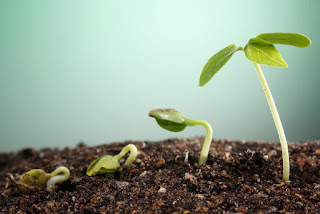I am proud to say I know a lot of writers. And by that I mean WOW! I know a LOT of writers. They come in all shapes and sizes, with all kind of techniques, specialties, favorite genres, etc. Most importantly, they all have different levels of mastery. Some are great fiction writers, others are beautiful essayists, some are very insightful poets, and many are on their way to becoming those things. So on that note, here are a few little hints on how they advanced on that journey.
First, criticism. This is not as simple as it may sound. Of course, every writer needs to hear when they do things wrong – structural errors, telling instead of showing, and other common slips. And, of course, anyone who wishes to grow should be open to such critiques. (Note: “Open” does not mean accepting them without question, it just means not getting defensive) But a crucial part of this process is where the writer seeks out criticism, preferably as specific as possible.Too many times, an aspiring writer will present me or a workshop with a story and say, “So, what do you think?” It’s good that they are workshopping their pieces and seeking outside input, but the real opportunity comes when they ask for something specific. “Did this piece hold your interest?” “Was it funny?” “How is the grammar and structure?” “Was it readable?” These questions target a specific subject that the reader/critic can approach and that the writer can build from.
As we develop as writers, we can make these questions even more detailed, and really start working on our tools of the craft. “Was my description consistent with the mood?” “Did you connect with the main character?” And my favorite – “Did you see the twist at the end coming?” These precision questions can trigger a lot of discussion with the readers and extract a lot of information, all of which allows us as writers to grow.
Second, experimentation. We grow as we step outside our boundaries. In this regard, I always suggest writing a poem, an essay, a character sketch, or whatever is not typical for your styling. Play with ideas, have a few colossal failures, get some criticism, and grow. Writing one poem will not necessarily set you on course to be the next Poet Laureate, but flexing another set of writing muscles will never do you harm.
Lastly, I always recommend journaling. However you approach this is up to you – keep a diary, make notes about your life, write down random ideas as they pop into your head. The purpose of this is to take whatever is churning through your gray matter and turn it into words. The mere process of recording events in written form is valuable. As we start tying the emotions that came with those events to the words, our writing gains depth. Eventually, we start weaving ideas into these write-ups, and our journaling is now a regular writer’s workout, and with any workout, naturally, we grow.
The common factor among all these little things is that we find ways to see the world, our thoughts, our feelings, through the written word, and try to distill them into something that has power and emotion. It’s a long journey, and occasionally we backslide, but if we want to march forward on our journey as a writer, these are the things that help us grow. Plus, we write a lot of stuff in the meantime, and nothing’s wrong with that.


No comments:
Post a Comment